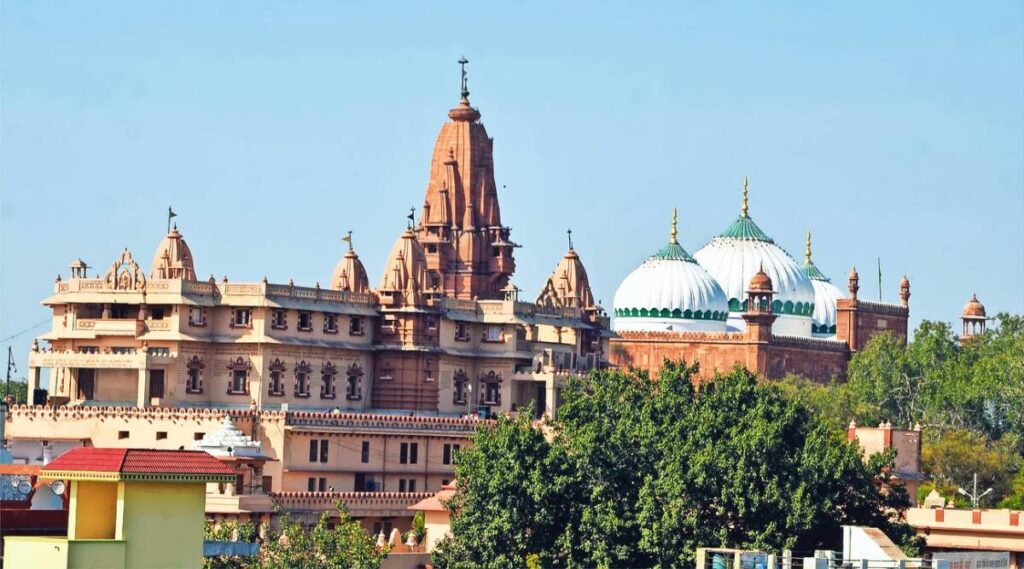District court seeks report and map of complex by next hearing on January 20.
Returning the spotlight on the Sri Krishna Janmabhoomi-Shahi Idgah Masjid dispute, a district court in Mathura has allowed an official inspection of the Shahi Idgah mosque complex by the Revenue Department in a fresh plea challenging the ownership of 13.77 acre land on which the Idgah is built.
Senior Civil Judge Sonika Verma has directed the Amin (revenue department official) to “inspect” the premises and file a “report along with a map” by January 20, the next date of hearing.
The direction has come in a plea filed by the Hindu Sena in the name of the deity Bal Krishna against the Intezamia Committee which manages the Idgah. Vishnu Gupta, founder of the Hindu Sena, is named as the next of kin of the deity in court filings.
The Idgah is situated next to the Sri Krishna Janmabhoomi Sthal, where Lord Krishna is believed to have been born.
The Mathura development comes at a time when there’s a courtroom battle underway in Varanasi in the Kashi Vishwanath-Gyanvapi matter.
On April 8 this year, the district court in Varanasi had appointed Advocate Commissioner Ajay Kumar Mishra to carry out an inspection of the Gyanvapi site. He was directed to “prepare videography of the action” and submit a report. The Supreme Court had refused to stay the direction for the survey but transferred the case to a senior judge. The district court had also directed the Archeological Survey of India to also “trace as to whether any Hindu temple ever existed before the mosque in question was built or superimposed or added upon at the disputed site.” That order is under challenge before the Allahabad High Court.
In Mathura this May, District Judge Rajeev Bharti allowed a plea by the Shri Krishna Janmabhoomi Trust and other private parties seeking ownership of the land in which the Shahi Idgah Mosque is built. In allowing that plea, Judge Bharti essentially referred the civil suit to a lower court for a trial.
EXPLAINED
1991 law & debate
The 1991 Places of Worship Act, enacted when the Ram temple movement was at its peak, mandates that the nature of all places of worship, barring the one at Ayodhya, be maintained as it was on August 15, 1947. But courts allowing surveys in Varanasi and now Mathura have set the stage for a relook at that Act itself which is under challenge as well.
Apart from looking into revenue records, the court will also have to decide the validity of a 1968 ‘compromise agreement’ between Shri Krishna Janmasthan Seva Sansthan, the temple management authority which is a registered society under law, and the Trust Masjid Idgah in which the temple authority conceded the contentious portion of land to the Idgah.
In 2021, advocate Ranjana Agnihotri along with six others had first filed a claim on behalf of the deity before a civil judge. The civil judge dismissed the plea, holding that it was not maintainable since none of the petitioners were from Mathura who could have a valid stake in the issue. When the decision was appealed, Judge Bharti allowed the plea.
At least a dozen cases have been filed in courts in Mathura by different petitioners. A common thread in all the petitions is a prayer for the removal of the mosque from the 13.77-acre complex, which it shares with the Katra Keshav Dev Temple.
Source: Indian Express


